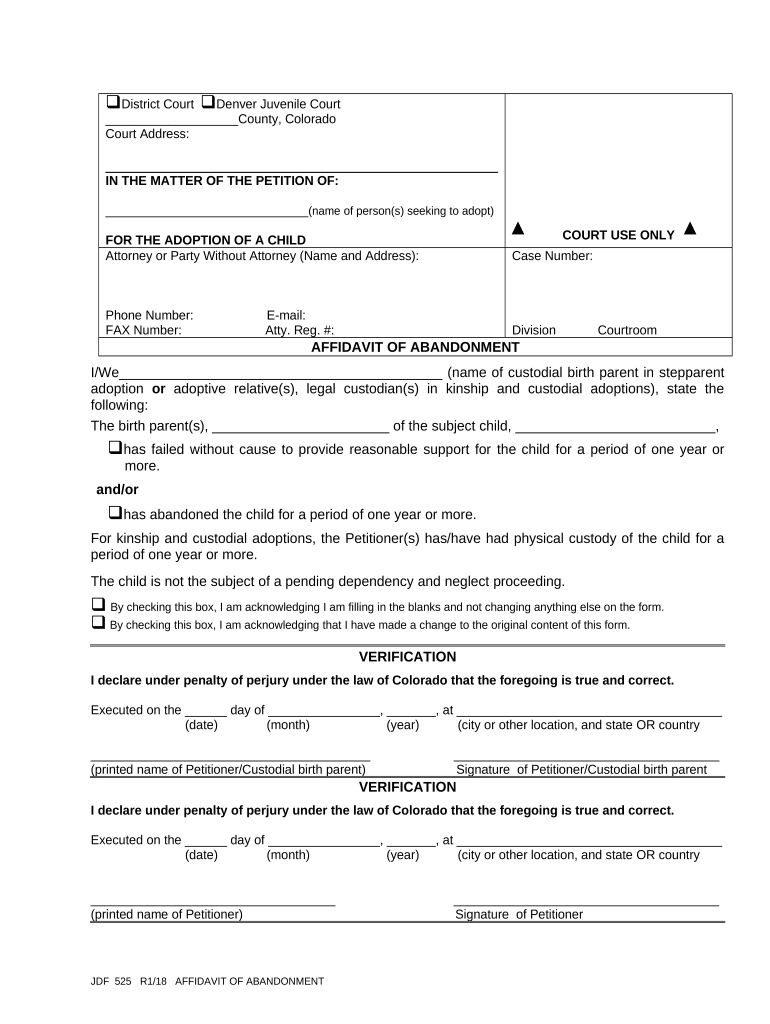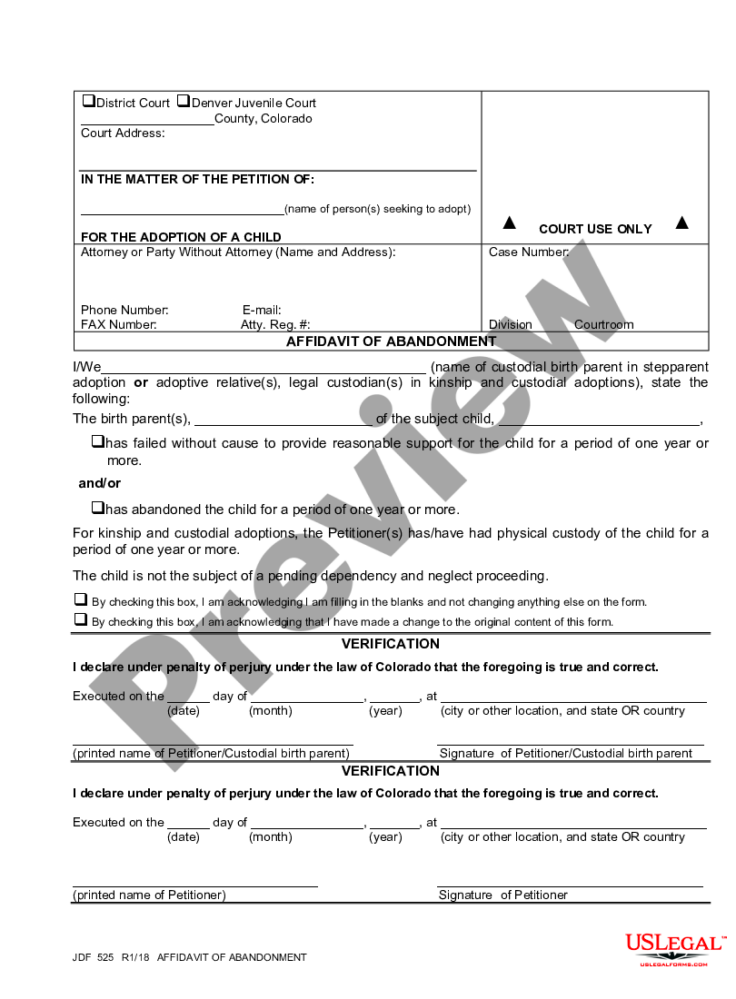Colorado Abandonment Laws Explained
While the term abandonment may seem harsh in Colorado it refers to the act of leaving something or someone behind without any plans to come back or assume responsibility. This applies to cases involving property, children or even spouses and the legal system takes these matters seriously. I recall a situation where a friend of mine went through a challenging divorce and her husband unexpectedly walked out on her leaving her to handle everything on her own. The emotional impact is significant but the legal repercussions can also be quite overwhelming.
In Colorado the concept of abandonment goes beyond simply leaving. Its about the intention behind the action. If a person departs without any intention of coming back they could encounter legal problems, depending on what or whom they have abandoned. Knowing how the law interprets abandonment can be crucial in avoiding serious repercussions down the line.
Types of Abandonment in Colorado

In Colorado the law acknowledges various types of abandonment, each carrying its own significance. It’s not solely about walking away from your home; it can also impact familial and personal connections. Lets delve into the details:
- Property Abandonment: This involves walking away from a property with no intention of returning. Imagine leaving your apartment in Denver and never coming back for your things. Legally, after a certain time, that property no longer belongs to you.
- Child Abandonment: The most heart-wrenching type. It involves a parent or guardian leaving a child without providing proper care, support, or supervision. I think as a parent, the idea of leaving your child behind is unfathomable, but sadly, it happens.
- Spousal Abandonment: In marriages, if a spouse walks away and leaves the other without support, this can be classified as abandonment, especially in divorce cases.
Each category comes with its own set of legal repercussions and the way abandonment is established can differ.
Property Abandonment and How It Works
Property abandonment happens more often than you might imagine. People leave behind their properties for various reasons like money troubles moving away or simply losing interest in an investment. However when this occurs in Colorado the legal system gets involved. A friend of mine faced a situation with property abandonment after relocating to another state and neglecting a small plot of land he owned. Many years later he discovered that the land was no longer his.
Typically property abandonment begins when the owner departs without taking any steps to care for or assert ownership over the property. Following a duration of time the government or another entity can take possession of it. However this doesn’t happen right away. The law mandates evidence showing that the individual intends to come back. In certain cases the unclaimed property may be sold at auction or transferred to another party interested in utilizing it.
Before you move out of a place, take a moment to reconsider. Even if you feel like you’re finished with it, there are procedures to follow to ensure everything is in order, preventing any unforeseen issues later on.
Child Abandonment Laws in Colorado
Child abandonment is a topic that evokes deep emotions. Just think about the impact of leaving a child behind not only in a sense but also in an emotional sense. In Colorado the issue of abandonment is treated with seriousness and there are legal measures in place to safeguard the most vulnerable. The idea of a child feeling unloved or ignored truly saddens me and I believe every parent should grasp the significance of their duties.
In Colorado child abandonment occurs when a parent or guardian leaves a child behind with no plans to come back or neglects to provide the care and support the child needs. This can involve dropping the child off somewhere and not returning. Sadly life is more complicated than just walking away from such situations.
The legal framework outlines criteria and timeframes for establishing abandonment. When a parent is missing for a duration without offering assistance, nurturing or even minimal contact the court may deem it as abandonment. It’s not solely an action; it also involves disregarding a child’s emotional and financial well being.
If someone is found guilty of abandoning a child they may face charges that could result in losing their parental rights. The main concern of the state is always the welfare of the child. I’ve come across stories where parents lost their rights just because they didn’t fully grasp the seriousness of their absence. If you’re aware of someone facing challenges remind them that abandoning a child is never a solution.
Abandonment in Divorce Cases
I remember a couple I thought had everything figured out. But then one day the husband disappeared out of the blue. No reason given, no help offered, just vanished. It happens more often than we realize particularly in Colorado where abandonment in divorce cases is not uncommon. Walking out on your partner during marriage without a valid justification or support can result in abandonment allegations, in a courtroom setting.
In Colorado the act of abandoning a spouse during a marriage doesn’t automatically imply wrongdoing in a divorce case. However it can impact the courts perspective on issues like spousal support or asset distribution. Abandonment is taken into account when one partner vacates the marital residence for an extended duration without a valid justification. This situation is commonly referred to as desertion. Although it may not carry the weight of child abandonment it comes with its own set of repercussions.
Abandonment can greatly influence how divorce settlements are reached. If one partner walks out and leaves the other to handle everything on their own the court may take that into account when splitting up property or deciding on alimony. For example if a husband departs without providing any support the court might require him to pay spousal support.
Should you ever find yourself in a similar predicament keep in mind that Colorados legal framework acknowledges the impact on both your well being and finances when it comes to being abandoned. The laws are designed to provide a sense of fairness in such cases.
Legal Consequences of Abandonment
Abandonment isn’t a hit; it also carries significant legal repercussions. Whether it’s leaving behind belongings a partner or even worse a child, Colorado law takes a dim view of such actions. The repercussions can vary from losing custody rights to facing criminal charges based on the circumstances.
In instances of abandoning children parents could lose custody of their kids and even face imprisonment or penalties. I recall coming across a situation where a father who hadn’t been in touch with his child for quite some time suddenly found himself at risk of losing all parental rights. It was not merely about not being present but also about showing no concern or accountability.
When it comes to abandoning a property owners risk losing their rights to their land or house. If they neglect the property for a while someone else can potentially lay claim to it. There could also be consequences, such as unpaid taxes or mortgages on the property.
In divorce cases abandonment can impact the division of assets and the awarding of spousal support. Judges consider various factors like the duration of abandonment and its underlying reasons. Regardless of its form abandonment brings about lasting legal repercussions that can endure for years and in some instances a lifetime.
The main point to remember is that whether it’s a kid, partner or your belongings leaving without handling things properly can have legal consequences later on.
How to Prove Abandonment in Court
Establishing abandonment can be more complex than it appears. In Colorado, the court seeks substantial proof that someone was deliberately left behind, be it a piece of property, a child or a spouse. I recall a friend navigating a challenging custody dispute where she needed to demonstrate that her ex had not only left their child but also emotionally detached. It wasn’t sufficient to show his absence; she had to establish that he had no intention of returning.
To establish abandonment in a setting you require strong evidence. Here’s a breakdown for you:
- For property abandonment: You’ll need evidence that the person left the property for a significant amount of time without any attempt to maintain it. Things like unpaid bills, neglected repairs, and even lack of communication regarding the property can help prove your case.
- For child abandonment: The court will look at the parent’s absence, lack of financial support, and failure to maintain any relationship with the child. Things like no contact over an extended period, no child support payments, and statements from witnesses who can vouch for the parent’s neglect can be crucial.
- For spousal abandonment: Evidence that a spouse left the marital home without providing support or maintaining any contact is necessary. This can include financial records showing a lack of contributions or testimonies from family members.
When it comes to abandonment cases, the legal system takes into account if the accused individual had a justification for their departure, like facing abuse or dealing with a health crisis. Its crucial to collect all the evidence before going to court since these cases can be complex and emotions tend to run strong.
FAQ About Abandonment Laws in Colorado
Abandonment laws can be tricky to understand and you may have numerous inquiries about them. Here are a few frequently asked questions that I’ve encountered while assisting friends in navigating Colorados legal system.
- Can abandonment affect custody decisions? Absolutely. If a parent has abandoned their child, the court may strip them of their custody rights.
- What is the timeframe for property abandonment? In Colorado, property is generally considered abandoned after three years of non-use or neglect.
- Can spousal abandonment impact divorce settlements? Yes. If one spouse leaves and provides no financial or emotional support, it can affect alimony and the division of assets.
- Is it possible to reverse an abandonment decision? In some cases, yes. If a parent or spouse can prove that their absence was due to unavoidable circumstances, they might be able to reverse the decision.
- What happens if someone abandons a rental property? The landlord can take legal action to reclaim the property and may even sue for any damages or unpaid rent.
If you are facing abandonment in any way it’s a good idea to seek advice from a lawyer to gain a better understanding of what actions to take next.
Conclusion: Understanding Your Rights and Responsibilities
Abandonment is an unexpected occurrence that catches people off guard. It can involve leaving behind a home, a child or a partner and in Colorado the legal ramifications are significant. I’ve witnessed the profound impact it has on individuals lives not only on an emotional level but also in terms of legal matters.
Its essential to recognize that each circumstance is unique and that the legal system considers intent. If you or someone close to you is dealing with an situation its important to be aware of your rights and obligations. Whether you feel abandoned or have had to part ways ensure you approach matters through the law to prevent any unnecessary complexities in the future.
In the end the purpose of the law is to safeguard individuals from being abandoned without assistance. However it’s always wise to approach these circumstances carefully with the support of experts who can assist you in navigating the intricacies.


